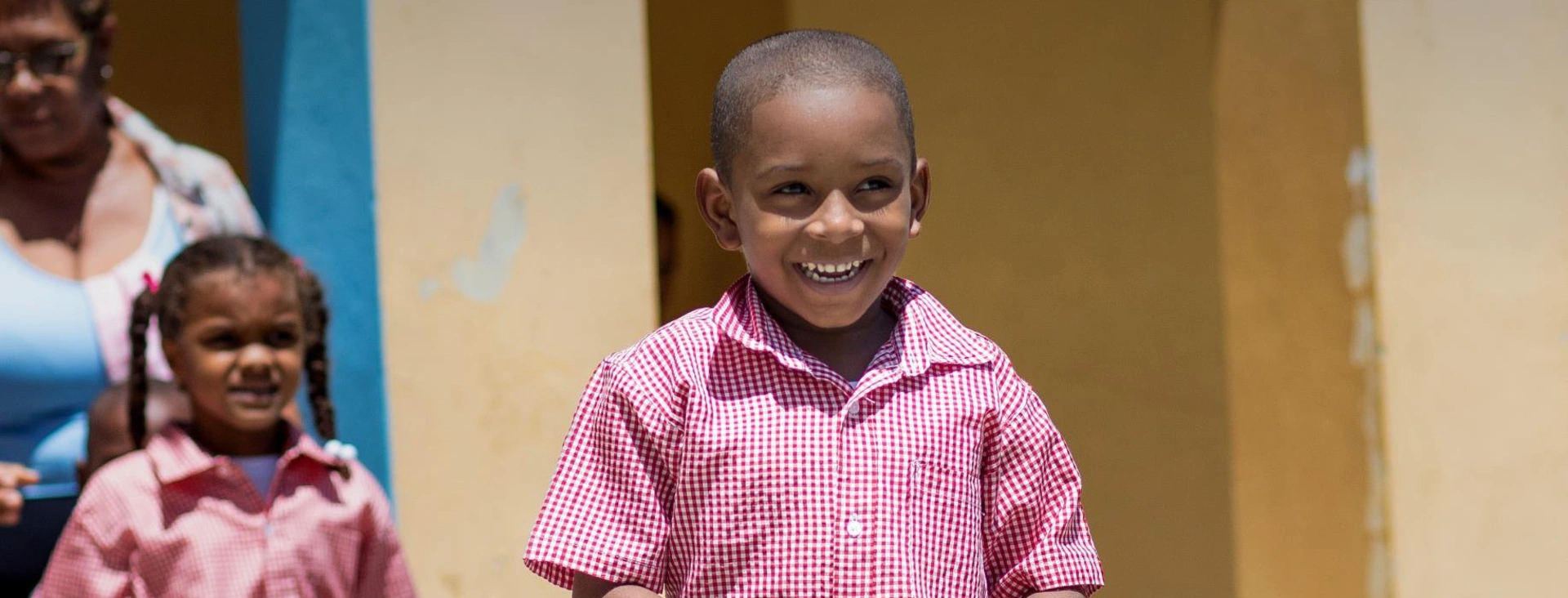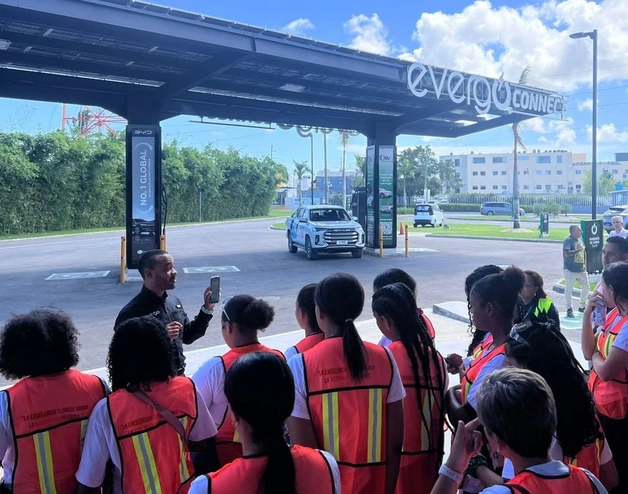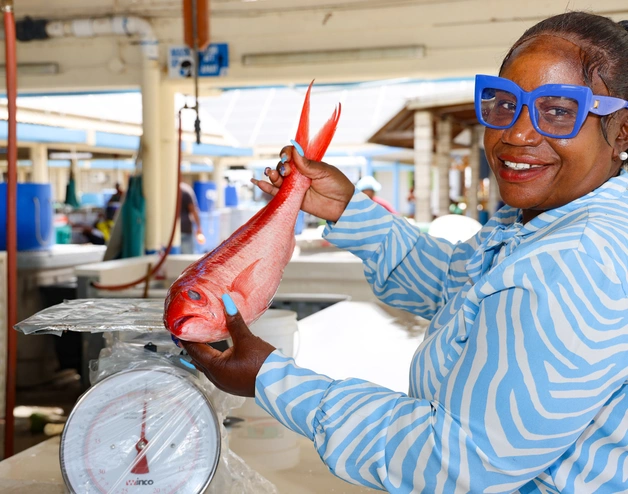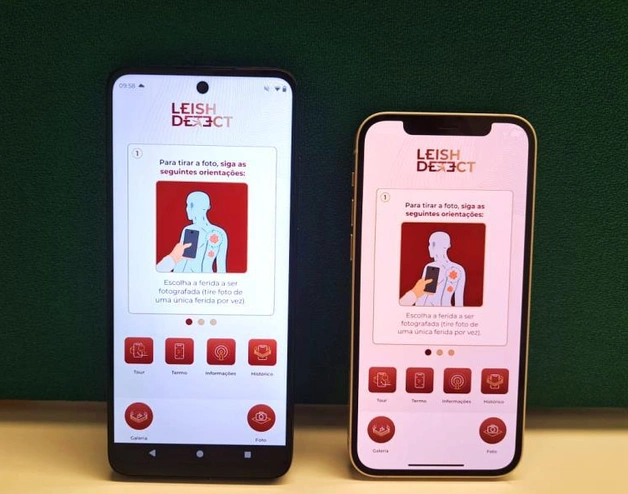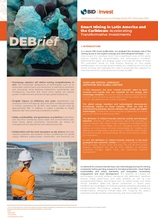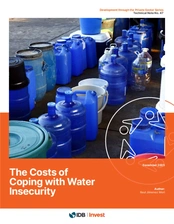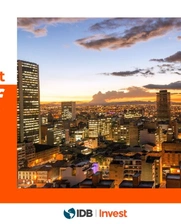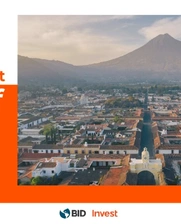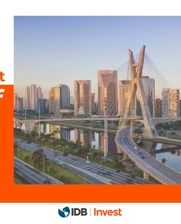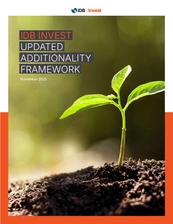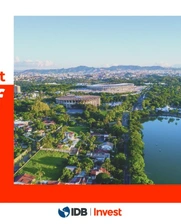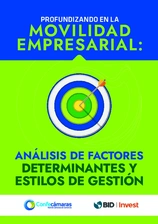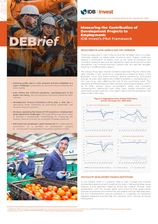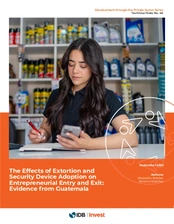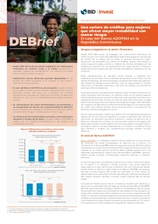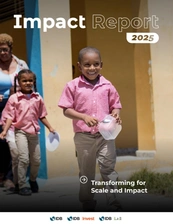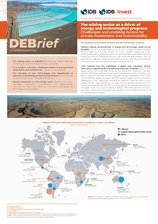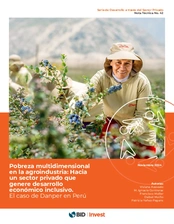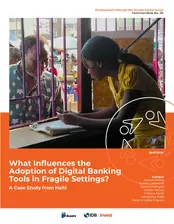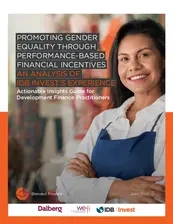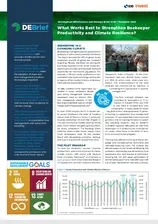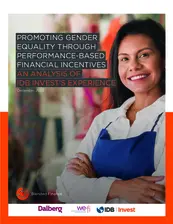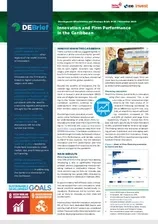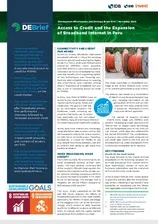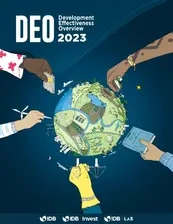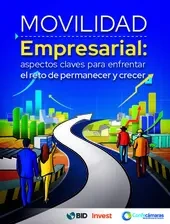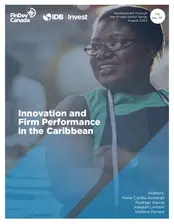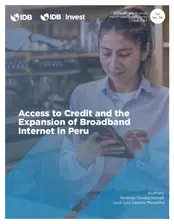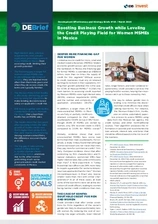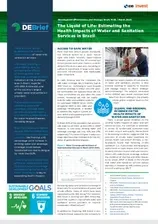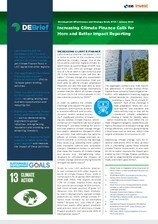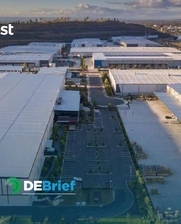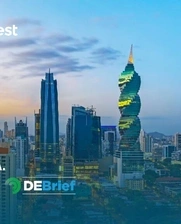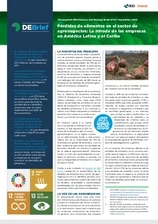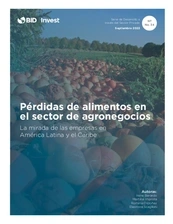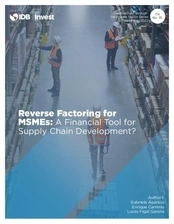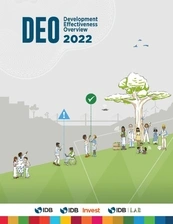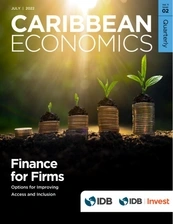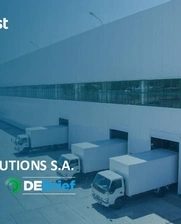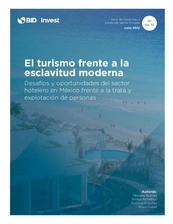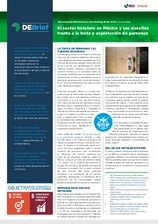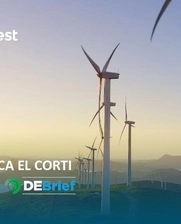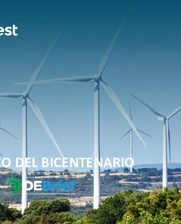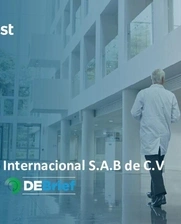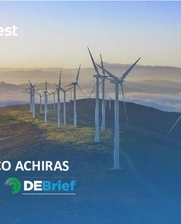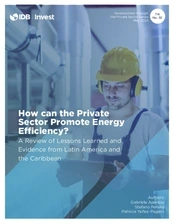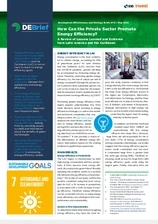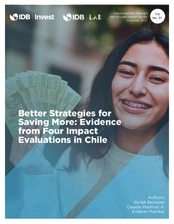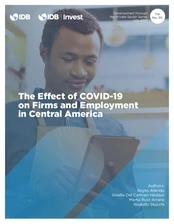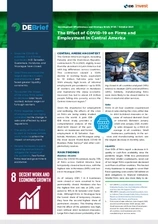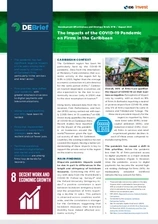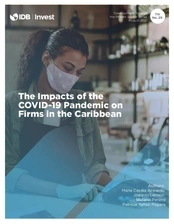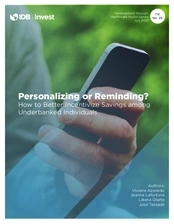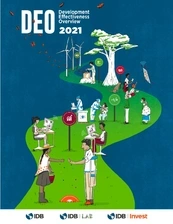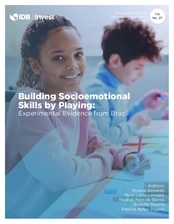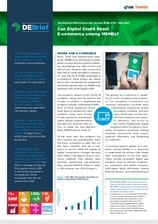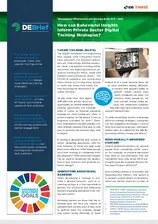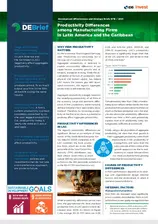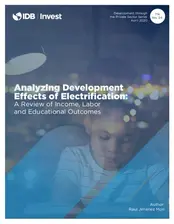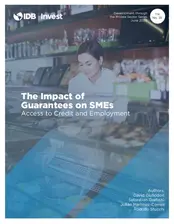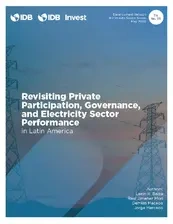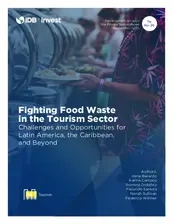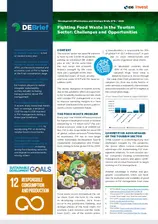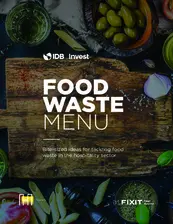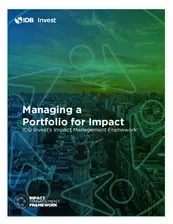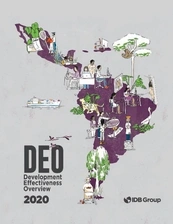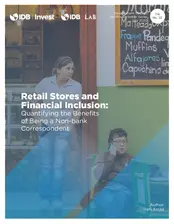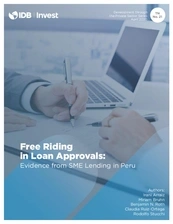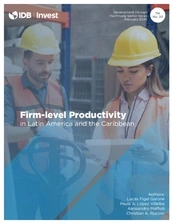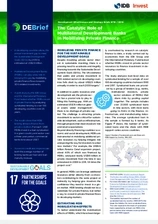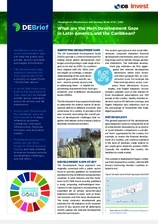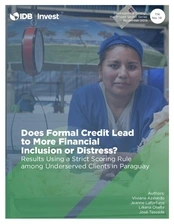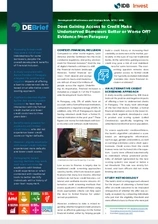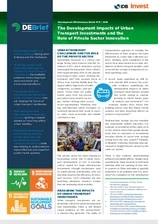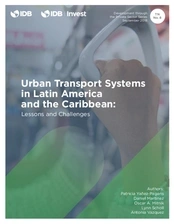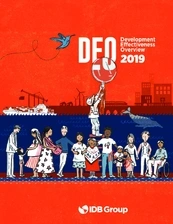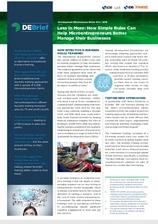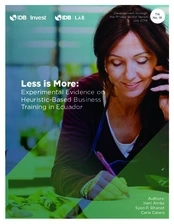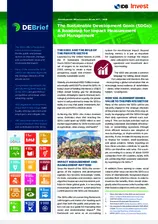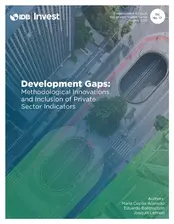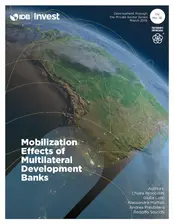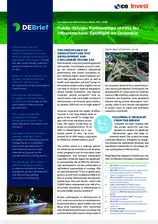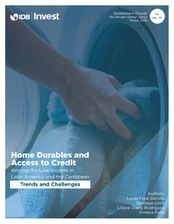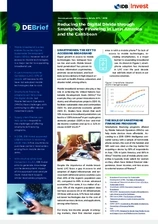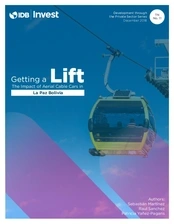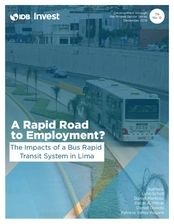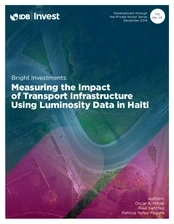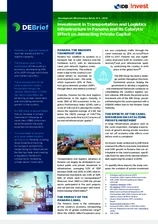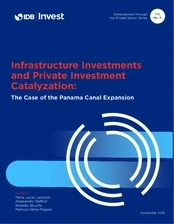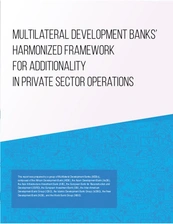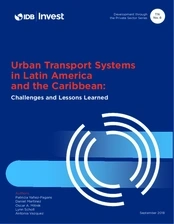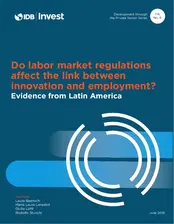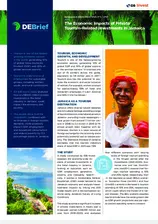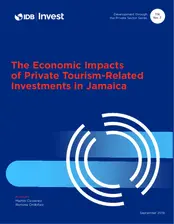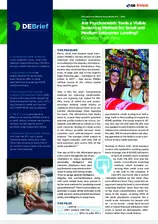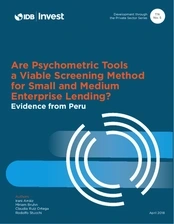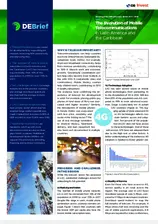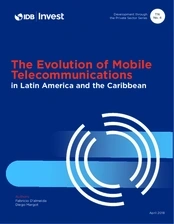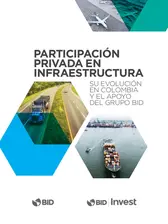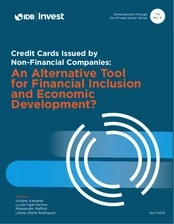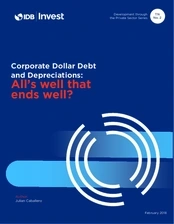We structure every project with development in mind, and we are serious about tracking, measuring, assessing and reporting on results. This helps us to make a greater impact, gives confidence to our partners and provides valuable feedback to our clients.
Achieving Maximum Impact
As the private sector arm of the IDB Group, IDB Invest is leveraging decades of experience as an impact investor to serve as a gateway to SDG impact in Latin America and the Caribbean.
IDB Invest’s mandate is to maximize development impact while maintaining financial sustainability, a two-sided objective shared with many impact investors. To crowd in private capital, we offer our strong capacity to select and structure projects with the greatest impact potential, manage ESG risks, and build a strong pipeline of SDG-enabling investment opportunities in the region.
As a member of the IDB Group, we can also leverage the IDB’s public policy and regulatory expertise, as well as IDB Lab’s capacity for building innovation ecosystems and financing inclusive early-stage ventures.
What it Means to Invest for Impact
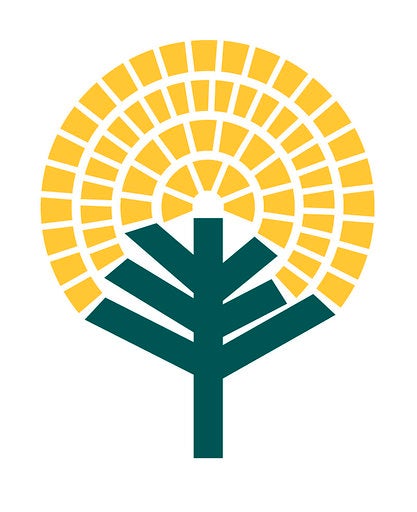 As the appetite for impact continues to grow and more investors adopt the impact label, it is increasingly important to converge around a shared understanding of what it means to invest for impact. It is one thing to integrate ESG factors into responsible investment decision-making as a screening tool, and another to intentionally pursue investments with the purpose of generating a net positive, measurable social or environmental impact alongside financial returns. To address this challenge a group of MDBs, DFIs, banks, impact asset managers, asset owners, and industry associations, including IDB Invest developed the Operating Principles for Impact Management.
As the appetite for impact continues to grow and more investors adopt the impact label, it is increasingly important to converge around a shared understanding of what it means to invest for impact. It is one thing to integrate ESG factors into responsible investment decision-making as a screening tool, and another to intentionally pursue investments with the purpose of generating a net positive, measurable social or environmental impact alongside financial returns. To address this challenge a group of MDBs, DFIs, banks, impact asset managers, asset owners, and industry associations, including IDB Invest developed the Operating Principles for Impact Management.
The Principles provide a framework to guide investors on the integration of impact considerations throughout the investment lifecycle. As a signatory to the Principles, IDB Invest publicly discloses, on an annual basis, the alignment of our impact management systems with the Principles and, at regular intervals, arranges for independent verification of this alignment. The following documents are IDB Invest’s annual disclosure statements, as well as the independent verification of alignment provided by the IDB Group’s independent Office of the Executive Auditor.
Documents
Our Assessment Tools
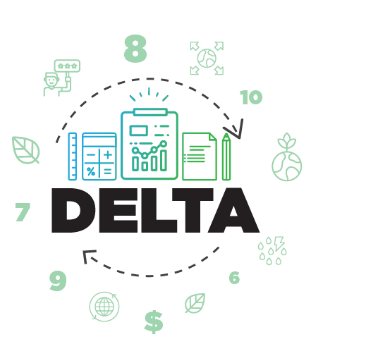
The DELTA Tool (for Development Effectiveness Learning, Tracking and Assessment), which has set a new benchmark for other organizations committed to development tracks each project at every step of the project cycle. It allows us to standardize how we score and analyze different aspects, such as:
• How well does the project align with the IDB Group’s development priorities?
• What are the potential economic returns for IDB Invest and for the client?
• To what extent will the project produce social benefits?
• How can its development impact be accurately assessed and verified?
Knowledge
-
December 2025
Smart Mining in Latin America and the Caribbean: Accelerating Transformative Investments
-
-
December 2025
Client Impact DEBrief: Central America Small Enterprises Investment Fund IV – CASEIF IV
-
-
-
-
-
October 2025
A Deeper Look at Business Mobility: Analysis of Success Factors and Management Styles
-
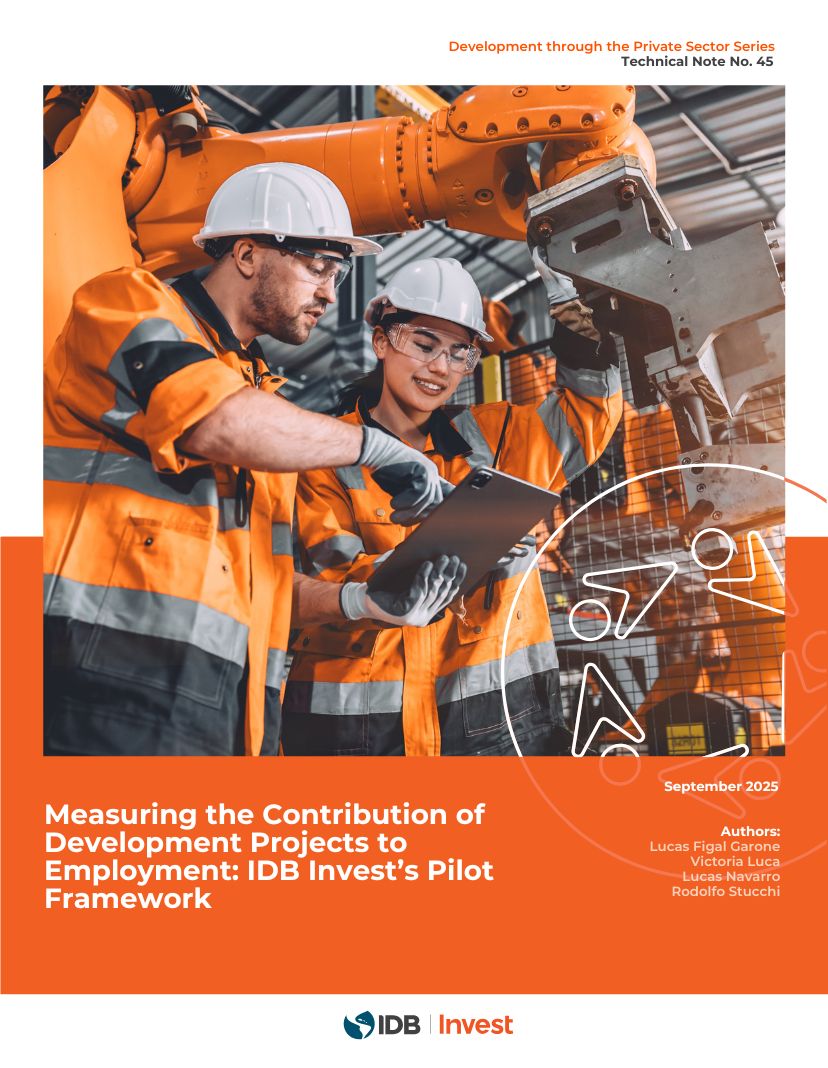 September 2025
September 2025Measuring the Contribution of Development Projects to Employment: IDB Invest's Pilot Framework
-
September 2025
(DEBrief) Measuring the Contribution of Development Projects to Employment: IDB Invest’s Pilot Framework
-
September 2025
The Effects of Extortion and Security Device Adoption on Entrepreneurial Entry and Exit: Evidence from Guatemala
-
August 2025
(DEBrief) A Loan Portfolio for Women that Offers Higher Returns with Lower Risk: The Case of Banco ADOPEM in the Dominican Republic
-
-
June 2025
(DEBrief) Multidimensional Poverty and its Measurement in the Private Sector: The Case of Danper in Peru
-
April 2025
(DEBrief) The Mining Sector as a Driver of Energy and Technological Progress: Challenges and Enabling Factors for Private Investment and Sustainability
-
April 2025
Driving Market-level Changes in Impact Investing: Steps for Investors and a Call for Action
-
-
December 2024
The Economic Contribution of the Panama Canal and its Sensitivity to Internal and External Shocks
-
December 2024
(DEBrief) Measuring the Social and Economic Impact of Increased Access to Private Healthcare in Brazil
-
November 2024
(Guide) Actionable Insights Guide for Developing Inclusive Private Label Supply Chains
-
November 2024
Private Labels in the Latin American and Caribbean Grocery Market: An Analysis of Local Supply Chains and the Inclusion of Micro, Small, and Medium Enterprises, with a Gender Perspective
-
-
November 2024
Multidimensional Poverty in Agribusiness: Towards a Private Sector that Generates Inclusive Economic Development. The Case of Danper in Peru
-
-
-
-
-
June 2024
(DEBrief) The Private Management of Public Hospitals Can Save Lives. Evidence from Hospital Israelita Albert Einstein during the COVID-19 Pandemic in Brazil
-
June 2024
Impact of Private Management of Public Hospitals on Health Outcomes: Evidence from Hospital Israelita Albert Einstein during the COVID-19 Pandemic
-
May 2024
(DEBrief) Sustainable Superfood Value Chains: Potential Opportunities in the Amazon
-
-
April 2024
What Influences the Adoption of Digital Banking Tools in Fragile Settings? A Case Study from Haiti
-
April 2024
(Guide) Promoting Gender Equality through Performance-based Financial Incentives: An Analysis of IDB Invest’s Experience
-
December 2023
(DEBrief) What Works Best to Strengthen Beekeeper Productivity & Climate Resilience?
-
December 2023
Promoting Gender Equality through Performance-based Financial Incentives An Analysis of IDB Invest’s Experience
-
-
November 2023
(DEBrief) Access to Credit and the Expansion of Broadband Internet in Peru
-
-
September 2023
Digital Training for Micro-Entrepreneurs: Experimental Evidence from Guatemala
-
-
-
-
-
March 2023
(DEBrief) Boosting Business Growth while Leveling the Credit Playing Field for Women MSMEs in Mexico
-
March 2023
(DEBrief) The Liquid of Life: Estimating the Health Impacts of Water and Sanitation Services in Brazil
-
February 2023
(DEBrief) Increasing Climate Finance Calls for More and Better Impact Reporting
-
-
-
-
-
September 2022
(DEBrief) Food Loss in the Agribusiness Sector: The Perspective of Companies in Latin America and the Caribbean
-
September 2022
Food Loss in the Agribusiness Sector: The Perspective of Companies in Latin America and the Caribbean
-
September 2022
Reverse Factoring for MSMEs: A Financial Tool for Supply Chain Development?
-
-
August 2022
(Caribbean Economics Quarterly) Finance for Firms: Options for Improving Access and Inclusion
-
-
June 2022
Tourism facing modern slavery: Challenges and opportunities for the hotel sector in Mexico
-
January 2023
(DEBrief) Human Trafficking and Exploitation: Challenges Facing the Hotel Sector in Mexico
-
-
-
-
-
-
-
-
-
May 2022
How can the Private Sector Promote Energy Efficiency? A Review of Lessons Learned and Evidence from Latin America and the Caribbean
-
May 2022
(DEBrief) How can the Private Sector Promote Energy Efficiency? A Review of Lessons Learned and Evidence from Latin America and the Caribbean
-
December 2021
Better Strategies for Saving More: Evidence from Four Impact Evaluations in Chile
-
-
October 2021
(DEBrief) The Effect of COVID-19 on Firms and Employment in Central America
-
August 2021
Debrief: The Impacts of the COVID-19 Pandemic on Firms in the Caribbean
-
-
August 2021
Personalizing or Reminding? How to Better Incentivize Savings among Underbanked Individuals
-
-
July 2021
Building Socioemotional Skills by Playing: Experimental Evidence from Brazil
-
-
March 2021
DEBrief: How can Behavioral Insights Inform Private Sector Digital Training Strategies?
-
February 2021
DEBrief: Productivity Differences among Manufacturing Firms in Latin America and the Caribbean
-
December 2020
Analyzing Development Effects of Electrification: A Review of Income, Labor and Educational Outcomes
-
-
October 2020
Revisiting Private Participation, Governance, and Electricity Sector in Latin America
-
September 2020
Fighting Food Waste in the Tourism Sector Challenges and Opportunities for Latin America, the Caribbean, and Beyond
-
September 2020
DEBrief - Fighting Food Waste in the Tourism Sector: Challenges and Opportunities
-
September 2020
Food Waste Menu: Bite-sized ideas for tackling food waste in the hospitality sector
-
August 2020
IDB Invest's Impact Management Framework: Managing a Portfolio for Impact
-
-
August 2020
Retail Stores and Financial Inclusion: Quantifying the Benefits of Being a Non-bank Correspondent
-
-
-
January 2020
DEBrief: The Catalytic Role of Multilateral Development Banks in Mobilizing Private Finance
-
November 2019
DEBrief: What are the Main Development Gaps in Latin America and the Caribbean?
-
November 2019
Report: Does Formal Credit Lead to More Financial Inclusion or Distress?
-
November 2019
DEBrief: Does Gaining Access to Credit Make Underserved Borrowers Better or Worse Off? Evidence from Paraguay
-
-
October 2019
Report: Urban Transport Systems in Latin America and the Caribbean
-
-
July 2019
DEBrief: Less is More: How Simple Rules Can Help Microentrepreneurs Better Manage their Businesses
-
July 2019
Report: Less is more: Experimental Evidence on Heuristics-Based Business Training in Ecuador
-
April 2019
DEBrief: The Sustainable Development Goals (SDGs): A Roadmap for Impact Measurement and Management
-
April 2019
Report - Development Gaps: Methodological Innovations and Inclusion of Private Sector Indicators
-
-
March 2019
DEBrief: Public-Private Partnerships (PPPs) for Infrastructure: Spotlight on Colombia
-
February 2019
Report: Home Durables and Access to Credit among the Low-Income in Latin America and the Caribbean
-
February 2019
DEBrief: Reducing the Digital Divide through Smartphone Financing in Latin America and the Caribbean.
-
February 2019
Report: Connecting to Economic Opportunity? - The Role of Public Transport in Promoting Women’s Employment in Lima
-
February 2019
Report: Getting a Lift - The Impact of Aerial Cable Cars in La Paz (Bolivia)
-
February 2019
Report: A Rapid Road to Employment? Development through the Private Sector Series - The Impacts of a Bus Rapid Transit System in Lima
-
February 2019
Report: Bright Investments - Measuring the Impact of Transport Infrastructure Using Luminosity Data in Haiti
-
November 2018
DEBrief: Investment in Transportation and Logistics Infrastructure in Panama and its Catalytic Effect on Attracting Private Capital
-
November 2018
Report: Infrastructure Investments and Private Investment Catalyzation: The Case of the Panama Canal Expansion
-
October 2018
Report: Multilateral development banks' harmonized framework for additionality in private sector operations
-
September 2018
Report: Urban Transport Systems in Latin America and the Caribbean: Challenges and Lessons Learned
-
September 2018
Report: Do labor market regulations affect the link between innovation and employment? Evidence from Latin America
-
September 2018
DEBrief: The Economic Impacts of Private Tourism-Related Investments in Jamaica
-
September 2018
Report: The Economic Impacts of Private Tourism-Related Investments in Jamaica
-
August 2018
DEBrief: Are Psychometric Tools a Viable Screening Method for Small and Medium Enterprise Lending? Evidence from Peru
-
August 2018
Report: Are Psychometric Tools a Viable Screening Method for Small and Medium Enterprise Lending? Evidence from Peru
-
-
July 2018
Report: The Evolution of Mobile Telecommunications in Latin America and the Caribbean
-
June 2018
Reporte: Participación privada en infraestructura: su evolución en Colombia y el apoyo del grupo BID
-
March 2018
Credit Cards Issued by Non-Financial Companies: An Alternative Tool for Financial Inclusion and Economic Development?
-
Alessandro Maffioli is Managing Director of Development Effectiveness at IDB Invest, where he oversees the organization's end-to-end Impact Management Framework. During his time at the IDB Group, Alessandro has coordinated impact evaluations of projects in areas including agricultural development, science and technology, small and medium-sized enterprise productivity, and access to credit. Prior to joining the IDB Group in 2004, he spent five years at the Research Center for Latin American Studies and Transition Economies of Bocconi University, where he focused his research on the economics of innovation and regional economics. Alessandro holds a PhD in Production and Development Economics from the University of Insubria, Italy.
Contact: [email protected]

